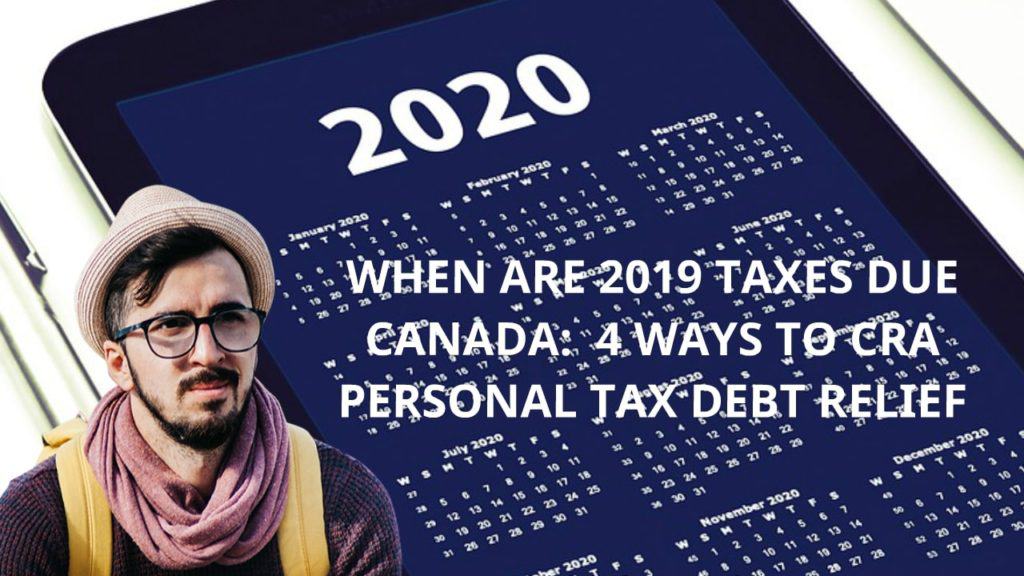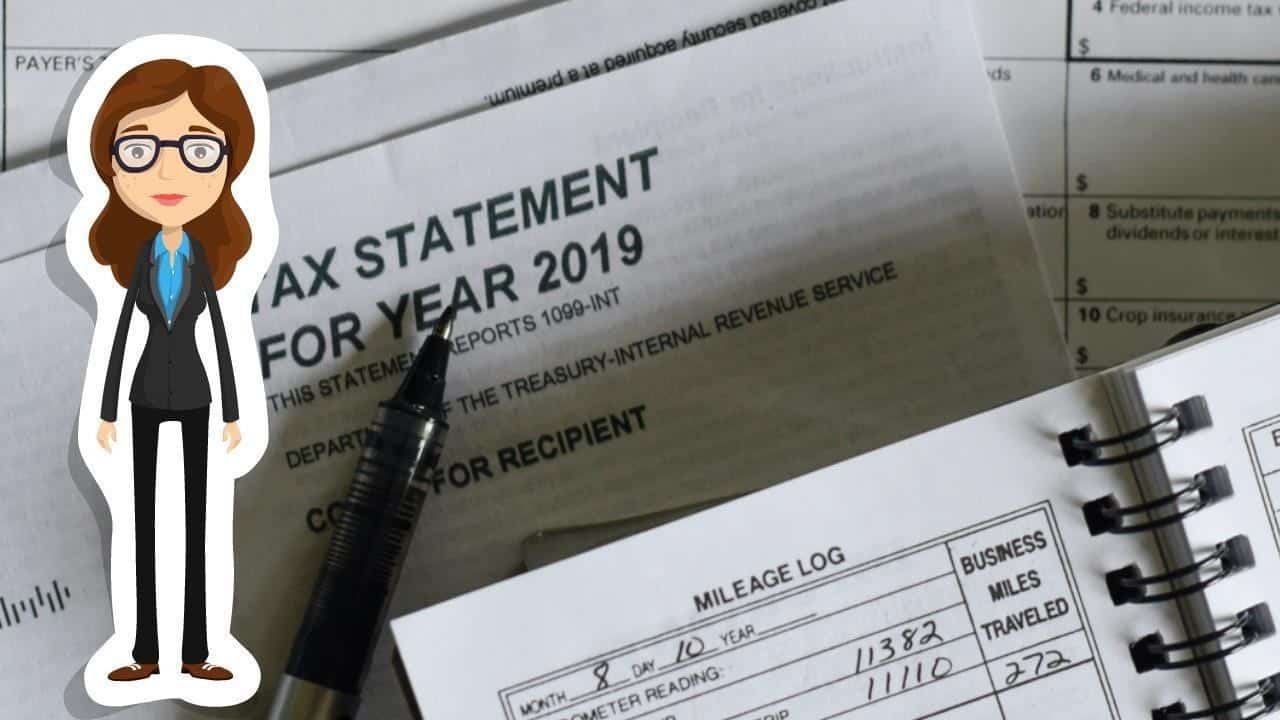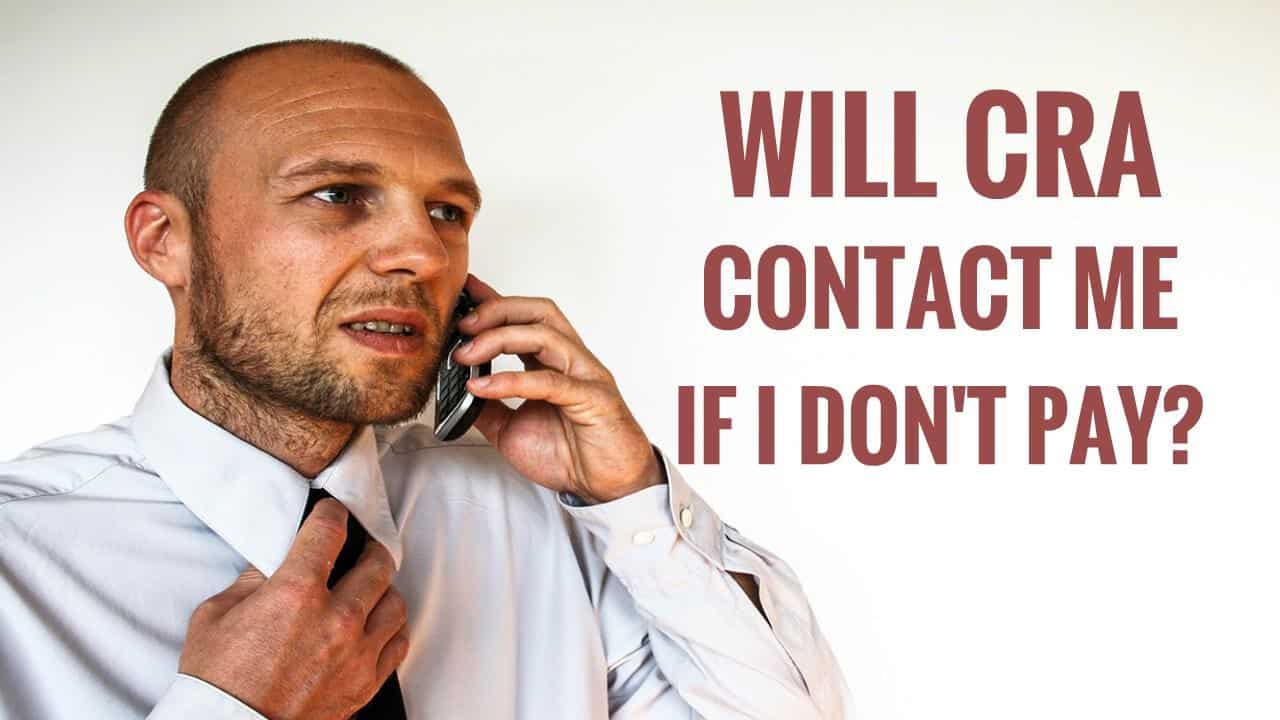The Ira Smith Team is operating fully and both Ira, as well as Brandon Smith, are available for a telephone appointment, conference call or online video chat.
Stay healthy and balanced and safe everybody.
Introduction
This is the time of year where you see all the advertisements for income tax preparation services. There are always two parts to every income tax season: 1. preparing and filing your income tax return, and 2. getting your refund or paying what you owe. I have in the last couple of weeks received several phone calls from people asking when are taxes due Canada 2019? People seem to be confused.
So, in today’s Brandon’s Blog, I discuss when personal and corporate income taxes are due for both filing and payment. I also discuss what happens if you owe money and cannot pay and if CRA payment arrangements are possible.
“One thing is clear: The Founding Fathers never intended a nation where citizens would pay nearly half of everything they earn to the government.”
― Ron Paul
When are taxes due Canada 2019 for Canadians?
This year, due to COVID-19, Canadians are allowed to file taxes later.
When can I file my taxes 2019 canada: When are taxes due Canada 2019? The deadline for people to file has been postponed to June 1, 2020. The due date to pay any kind of amounts owing has been extended to September 1, 2020. This includes the June 15, 2020, instalment payment for those who have to pay by instalments.
CRA self-employed income tax deadline: For individuals carrying on a business either as a sole proprietor or an unincorporated partnership in 2019, when are taxes due Canada 2019? Your return for 2019 needs to be filed on or before June 15, 2020. However, if you have a balance owing for 2019, you need to pay it on or prior to September 1, 2020. The June 15, 2020 instalment payment, for those that need to pay by instalments, is also due September 1.
When are corporate taxes due in Canada: When are taxes due Canada 2019? June 1, 2020, is the filing due date for all corporations that would otherwise have their filing due after March 18 and before June 1, 2020. The payment date for the fiscal tax year is September 1, 2020. This includes balances and instalments under Part 1 of the Canadian Income Tax Act due on or after March 18 and before September 1, 2020.
So when are taxes due Canada 2019 for trusts and charities? I am glad that you asked!
Trusts: When are taxes due Canada 2019? The filing for the current tax year, including the T3 information return, is extended to May 1, 2020. This applies to charities with a tax year-end of December 31, 2019.
The new filing date for all trusts that would otherwise have a filing due in April or May is extended to June 1, 2020.
Payment for the current tax obligation year is now September 1, 2020. This applies to income tax obligation balances and instalments due on or after March 18 and before September 1, 2020.
Charities: When are taxes due Canada 2019? The filing for charities with a Form T3010 due between March 18 and December 31, 2020, is now December 31, 2020. Obviously, registered charities do not need to bother with knowing their payment date, because they do not have one!

What about International students?
I have seen a lot of chatter online about international students studying in Canada. This group has a challenging time determining whether they ought to file a Canadian tax return. This is because international students may not owe Canadian taxes or have access to all tax refunds or credits.
International students need to submit a tax return if they owe tax or if they intend to claim a refund or credits.
Considering that Canadian-earned income is constantly taxed in Canada, employment with a Canadian firm is a clear sign that you should submit an income tax return, even as a non-resident. Therefore, international students employed in Canada may find themselves either owing to tax or being able to claim a refund.
Students who have actually established considerable property connections to Canada can be considered residents of Canada. Significant property connections consist of a home, whether owned or rented, Canadian savings account or drivers’ license or living with a spouse or dependents.
Like all other Canadian citizens, international students under this classification are eligible for GST credits, tuition carry-forward credits, and other provincial credits or tuition rebates.
Students who spend less than 183 days (6 months) in Canada, and who do not establish residential ties in Canada, are usually classified as non-residents. Non-residents are not qualified for benefits or credits. They are just required to submit an income tax return to either pay taxes or to receive a refund on earnings from Canadian sources.
CRA payment arrangements
So you will remember I said there are two parts to when are taxes due Canada 2019 season: 1. preparing and filing the return, and 2. paying what you owe. Possibly you owe CRA back taxes and cannot afford to pay 2019 income tax. Regardless of when are taxes due Canada 2019, you have tried very hard to pay, but especially in this COVID-19 coronavirus world, you just won’t have the money.
If this sounds familiar, then one day you can expect to get a call from a CRA collection officer because of when are taxes due Canada 2019. They will listen to your story and suggest that you enter into a payment arrangement with CRA. They will, of course, expect you to pay the most possible. Once you reach an agreement, and you provide post-dated cheques to CRA, then you just need to make sure that each cheque clears on the payment due date.
But what happens if all the post-dated cheques you gave to CRA is only for say, one year’s worth of payments that do not pay off what you owe in total? Or worse, what if one of your cheques does not clear your bank for insufficient funds.
You will then get a call from a collection officer who says what you have done so far is not good enough. They will want details from you about your bank accounts. If it is your proprietorship, partnership or company, CRA will want a copy of your accounts receivable listing and all your bank account information, other than for the account you have given the post-dated cheques on. If you have a job, they already know who you work for.
What do they do with that information? They garnishee your wages and your bank accounts. By doing that, they can shut you or your company down without even having to go to Court. Then you will not be able to buy food, pay your rent or mortgage or run your business.
At that stage, you will have only one choice. That will be to not walk but run, to a licensed insolvency trustee in order to take steps for a formal restructuring of your debt. This will provide you with the time to free up your wages and bank accounts and run your business. That is the only way you will be able to survive.
Summary
I hope that you enjoyed this when are taxes due Canada 2019 Brandon’s Blog.
The Ira Smith Team family hopes that you and your family members are remaining secure, healthy and well-balanced. Our hearts go out to every person that has been affected either via misfortune or inconvenience.
We are all citizens of Canada and we need to coordinate our initiatives to stop the spread of the coronavirus. Social distancing and self-quarantining are sacrifices that are not optional. Families are literally separated from each other. We look forward to the time when life can return to something near to typical and we can all be together once again.
Ira Smith Trustee & Receiver Inc. has constantly used clean, safe and secure ways in our professional firm and we continue to do so.
I hope that you got some useful information from this when are taxes due Canada 2019 Brandon’s Blog. Revenue and cash flow shortages are critical issues facing entrepreneurs and their companies and businesses.
If anyone needs our assistance, or you just need some answers for questions that are bothering you, feel confident that Ira or Brandon can still assist you. Telephone consultations and/or virtual conferences are readily available for anyone feeling the need to discuss their personal or company situation.
Are you now worried just how you or your business are going to survive? Those concerns are obviously on your mind. This pandemic situation has made everyone scared.
The Ira Smith Team understands these concerns. More significantly, we know the requirements of the business owner or the individual that has way too much financial debt. You are trying to manage these difficult financial problems and you are understandably anxious.
It is not your fault you can’t fix this problem on your own. The pandemic has thrown everyone a curveball. We have not been trained to deal with this. You have only been taught the old ways. The old ways do not work anymore. The Ira Smith Team makes use of new contemporary ways to get you out of your debt problems while avoiding bankruptcy. We can get you debt relief now.
We look at your whole circumstance and design a strategy that is as distinct as you are. We take the load off of your shoulders as part of the debt settlement strategy we will draft just for you.
We understand that people facing money problems require a lifeline. That is why we can establish a restructuring procedure for you and end the discomfort you feel.
Call us now for a no-cost consultation. We will listen to the unique issues facing you and provide you with practical and actionable ideas you can implement right away to end the pain points in your life, Starting Over, Starting Now.
The Ira Smith Team is absolutely operational and both Ira, as well as Brandon Smith, are right here for a telephone appointment, conference calls and also virtual meetings.
Stay healthy and safe everybody.


